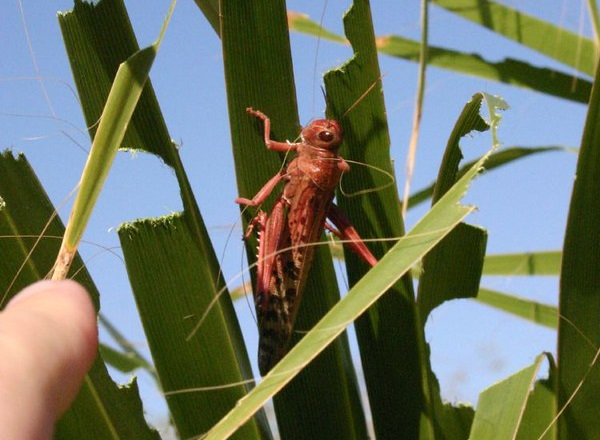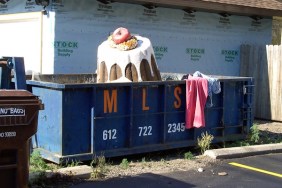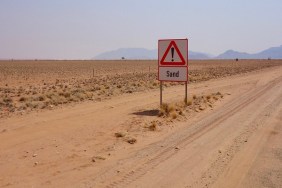Grab Bag
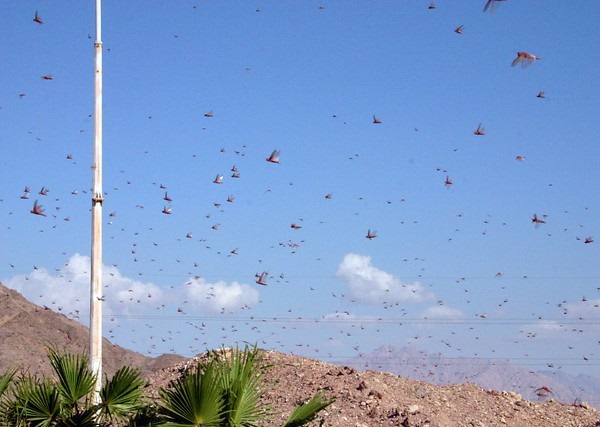
Readers have probably never had to catch locusts – singly or in bulk – and that goes double for Pakistan’s farmers. “We first had to learn, and then teach the locals how to catch the locusts,” explained Muhammad Khurshid. “Nets are useless against them.” The key to capturing the critters is their inherent cold-bloodedness: locust swarms cling to trees and shrubs at night when temperatures drop.
Night of the Locust
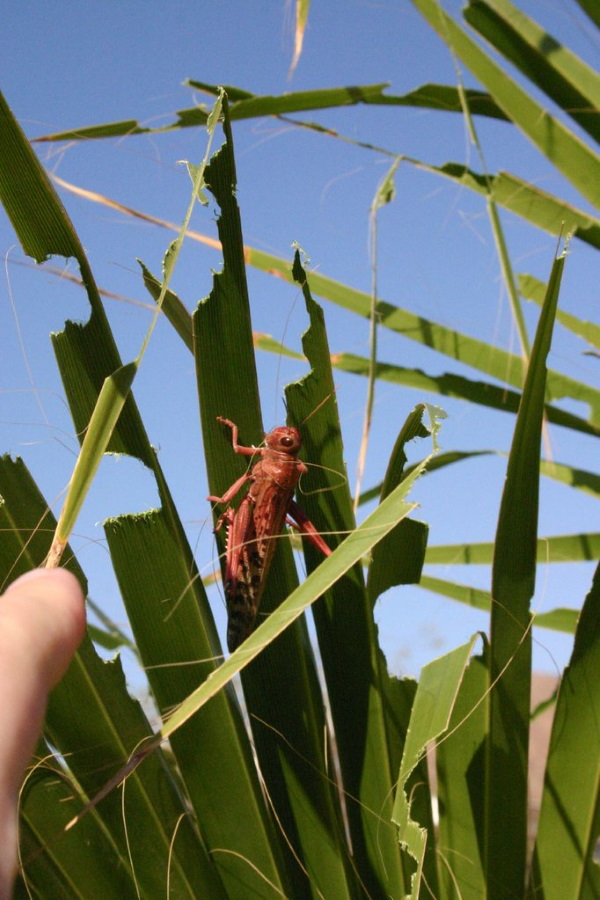
While locusts don’t exactly “sleep”, their general sluggishness after sundown makes them sitting ducks for villagers armed with brooms and rakes. The sheer numbers of overgrown grasshoppers enable the farmers to bag as many as they can before the arrival of dawn. So, just how much cold hard cash to the farmers receive for their cold crispy locusts? Project organizers had no real metrics to guide them and, at first, the farmers were reluctant to use their downtime catching bugs. Money is an excellent motivator, however, and dubbing the project with as catchy slogan (“Catch locusts. Earn money. Save crops”) didn’t hurt either.
Greenbacks for Grasshoppers
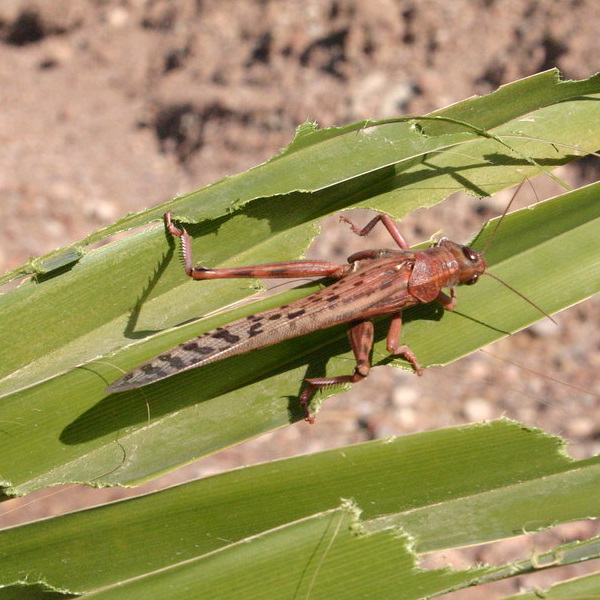
One farmer who joined the pilot project with her son after all of her crops were consumed by locusts earned 1,600 rupees (about $10) after a full night of locust-gathering outing. The windfall not only helped the farmer offset the losses from crop damage, the unlikely windfall convinced her neighbors that gathering insects was both worthwhile AND lucrative. Eventually, project organizers settled on a basic pay rate of 20 rupees (12 cents) per kilogram of locusts. Not exactly pennies from heaven but… close enough!
A Crop ‘o Hops Now
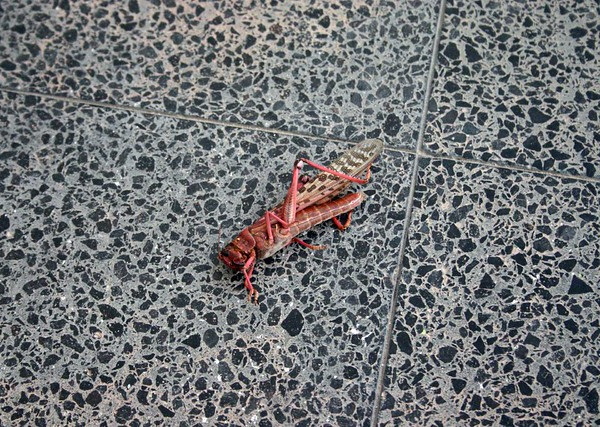
If you’re wondering whether locusts are abundant enough to sustain this sort of endeavor, wonder no more: after 20 tons of bugs had been collected, the program ran out of funding and had to be paused! While even that amount of locusts hardly puts a dent in these massive swarms, the funds given to affected farmers and villagers provided a welcome boost to their incomes. Now that the data has been analyzed, the Pakistani government is planning to relaunch the project on a much larger scale and in many more regions of the country. Kudos to both Muhammad Khurshid and Johar Ali, each of whom can now put a (chicken) feather in their cap. (images via Niv Singer)
Like your flying creatures bigger and cuter? Check out Tiger Face Jet Supports Endangered Big Cats!

